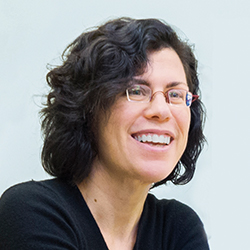News
‘New Math’ Strategies for ‘Old Math’ Mindsets
A study of teachers coauthored by James Spillane offers valuable how-tos for getting employees on board with reforms.
Spillane, the Spencer T. and Ann W. Olin Professor in Learning and Organizational Change, and his collaborators wondered how school leaders were able to get elementary school teachers to adopt a curriculum that differed from what the teachers had learned. One aim of the study was to determine whether the teachers’ interactions with peers influenced their beliefs about math instruction.
The study found that it took multiple strategies—changing the organizational structure, adopting curriculum that was different enough to nudge teachers to talk to one another, and offering professional development opportunities—to lead a majority of teachers to change their beliefs over time about how to teach math.
The results hold important lessons for other organizations looking to change their members’ behavior, says Spillane, who also has a courtesy appointment in Northwestern’s Kellogg School of Management.
“Organizations need to take a holistic approach and think about how various components of their infrastructure shape interactions among employees,” Spillane says. “Peers can be a powerful source for improvement, but leaders have to support, engage, and channel this.”

No One Is Immune to Fake News
Even when we know we’re getting false, fictitious, or misleading information, our exposure to it can have clear consequences, says David Rapp, professor of learning sciences.
We may feel confused or doubt what we previously knew, says Rapp, whose article on the consequences of exposure to misinformation appears in the journal Policy Insights from the Behavioral and Brain Sciences.
The article, coauthored by Northwestern cognitive psychology PhD student Nikita Salovich, builds on Rapp’s previous work suggesting that even when people know better, they often draw on inaccurate or misleading ideas when making decisions or solving problems.
“People show clear effects of that information, whether it comes from listening to news or reading fiction,” Rapp says. The authors add that learning how to critically evaluate misleading statements can improve understanding. So can recognizing that we’re not immune to fake news.

Stem For Pre-K
During October’s statewide STEM Summit at Northwestern, teachers tried out playful ways to build STEM learning into early childhood education. The ninth annual event was co-presented by SESP’s Office of Community Education Partnerships.
 Variable Power of Positive Thinking
Variable Power of Positive Thinking
Searching for a silver lining in a stressful situation can help ease anxiety, particularly for people from lower socioeconomic backgrounds, suggests new research by Emily Hittner, a human development and social policy PhD student and life span developmental psychobiologist.
Hittner says that the findings, published in the journal Emotion, “highlight the important role a person’s situation or environment plays in shaping how they deal with their emotions—and how that matters for their health.”
Reappraisal, a strategy of cognitive behavioral therapy, involves finding something positive in a negative situation. Someone who worries about loneliness after a breakup, for example, might seek new passions or rekindle an old friendship.
Hittner and her team, including SESP faculty member Claudia Haase and PhD student Katie Rim, analyzed data from two different sources: a lab-based study of 112 married spouses and a nine-year national survey of more than 2,000 people.
Both studies showed that people who make less money benefit more from reappraising situations than those with higher incomes, possibly because low-income earners have less control over their environment. In both experiments, cognitive reframing began to lose its effectiveness when a person’s annual income rose above $35,000.

CTD Bolsters STEM Education in Jewish Day Schools
The Center for Talent Development is collaborating with Chicago-area Jewish day schools to strengthen STEM education programming and teaching, an effort supported by a grant from the Crown Family Philanthropies.
The funding will help CTD review the offerings for high-ability students, make program recommendations, offer professional development to teachers, and facilitate in-school programming for students at four partner day schools. A pilot after-school program at Hillel Torah North Suburban Day School is expanding this spring.
The grant will also help offset costs for Jewish day school students taking Sunday CTD enrichment courses on the Evanston campus.
The collaboration grew from a successful pilot program spearheaded by J-STEM, a nonprofit that provides supplemental STEM curriculum for Jewish elementary, middle, and high school students. In 2015, J-STEM founders Michael and Jennifer Zukerman approached CTD with the idea of creating a Sunday enrichment program to accommodate Sabbath-observant Jewish day school students.
“While supporting the needs of high-ability students,” says CTD associate director Rhoda Rosen, “the Crown funding will also help us strengthen programming and teaching for all students.”

SESP Names New Dean for Teacher Education
Kavita Kapadia Matsko (MS97), whose research focuses on developing and supporting teachers in urban schools, is SESP’s new associate dean for teacher education, succeeding Miriam Sherin. Matsko was previously director of strategic innovation and research at National Louis University.
In Brief
Learning sciences faculty members Megan Bang (PhD09) and Shirin Vossoughi received the Alumnae of Northwestern University’s Curriculum Development Award to create a hybrid social justice course for Northwestern undergraduates and Evanston Township High School students.
Human development and social policy faculty member and IPR fellow Mesmin Destin was recognized by the American Psychological Association for his early career work on how socioeconomic status affects human behavior.






